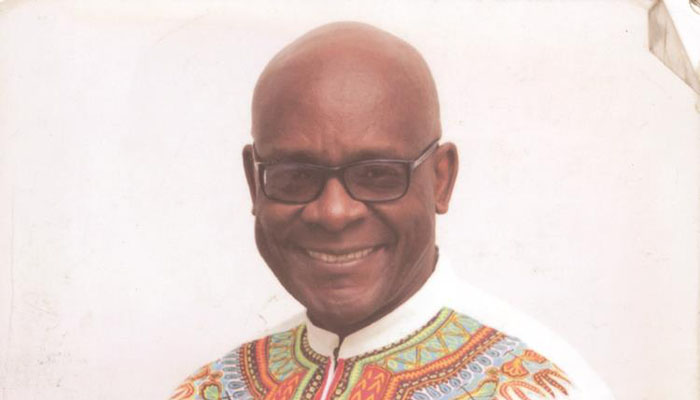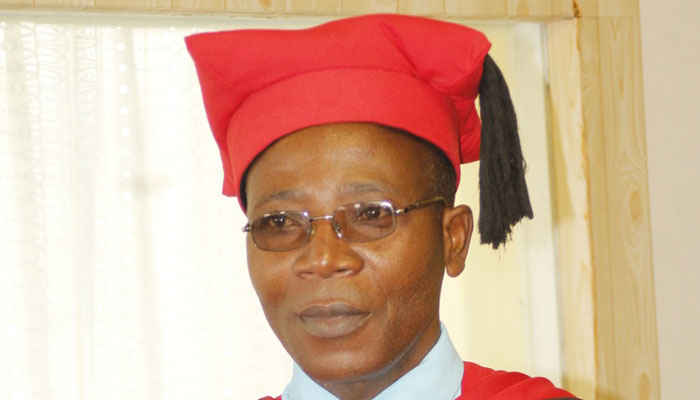
The Sunday Mail

DEBATE on identifying true prophets is raging following the recent appointment of Cde Kembo Mohadi as one of Zimbabwe’s Vice-Presidents.
This follows what some are saying is a fulfilment of a prophecy he received in November 2016 by popular Malawian prophet Shepherd Bushiri.
Leader of the South Africa- based Enlightened Christian Gathering (ECG) prophesied that Cde Mohadi, then State Security Minister, would be promoted and wear a crown at a time when there were succession battles in the ruling Zanu-PF party.
During the sermon, Bushiri prophesied that there were arrows targeted at Cde Mohadi, with a man visiting the witchdoctors to find ways to kill the newly-appointed Vice President.
“But God has been protecting you. And I am seeing you going higher and higher. Nothing bad will happen to you. I’m seeing promotion coming your way, I’m seeing a crown on your head,” said Prophet Bushiri as he spoke to Cde Mohadi.
Now with the appointment of Cde Mohadi as Vice-President being clear promotion and a form of crown, Prophet Bushiri’s declaration stands out among very few prophecies that have been made with precision and have come to pass in the full glare of the world.
Most prophecies that have been made over Zimbabwe by purported men of God have been vague and are yet to materialise.
And religious people among others have been debating whether the fulfilment of a prophecy is the only yardstick to identify one as a true prophet.
While this can be seen as a step taken further by naysayers always searching for negativity among prophets, the question is probably most thought-provoking deserving attention when trying to understand the prophetic movement. In his book titled |On Fake Prophets, Money and Youth”, founding Bishop of Life and Liberty Churches International, Dr Noah Pashapa, digs deeper into the characteristics of prophecy which he says exists among other religions such as African Traditional Religion, Hinduism, etcetera.
The book, which traces the phenomenon of prophecy as it gained ground around 2009, argues that prophecy which is made of fortune, forth-, facts- and future-telling cannot be the only yardstick to identify a true prophet.
“It’s important to make it clear that there is the prophetic in every religion. We have prophecy in African Traditional Religion, both the prophetic as fortune telling, future telling, forth telling or as facts-telling.
“The prophetic has facts telling which uses a spirit medium where you are told your circumstances as they are (name, where you come from, etc), fortune telling highlights your problem (someone trying to kill you) then forth-telling it’s what the ancestors say from the spirit realm (what you ought to do) while future telling is what happens in the future.
“So prophecy as these phenomena is also in African Traditional Religion, Hinduism and Satanism. People responding to this phenomenon somehow thought that when there is some prophecy it’s the God spoken of in the Bible. That kind of naivity, gullibility I felt was being taken advantage of and exploited by a lot of these profits (prophets).
“It is important to distinguish between prophecy inspired by biblical Christianity and that one inspired by con-artistry or sorcery or syncretism – a mixture of African Indigenous Religion and a little bit of Christianity,” Dr Pashapa, who is also a senior lecturer in Old Testament Studies and Biblical Hebrew at the University of Zimbabwe, said.
Dr Pashapa writes that one has to look at the fruits of the prophetic ministries to determine their genuineness with a scriptural reference of Matthew 7:5-16.
In addition he also posits that fake prophets are characterised by greed and covetousness, prefer all attention to themselves instead of Jesus Christ.
“Even though the passage in Deuteronomy 18:21-22 emphasises fulfilled predictions as an indicator of genuine prophecy or prophets it must be read in light of Deuteronomy 13:1-3 which emphasises that true prophets prioritise connecting people with with Jehovah-God through the Lord Jesus Christ, empowering them to cultivate mature victorious faith in Christ lifestyles independent of the prophet’s mediation role.
“Deuteronomy 13:1-3 says if the prophet is leading you to other gods then he or she is a false prophet. In our time other gods or idols functioning as extra objects of faith are talisman like water, anointed oil bottles, bangles, wristbands, portraits, posters and even written-prophecies.
“Though some and not necessarily all genuine Jehovah-God sponsored prophets perform miracles, the fact that a prophet/prophetess performs miracles on its own is not an indicator that one is a genuine Bible-based prophet or prophetess either.
“A true miracle is a supernatural sovereign act of God performed within a context of Jehovah-God’s redeeming and saving activity as it has a salvation and restoration objective … it is God rather than the prophet who chooses when or how to manifest the miraculous sign,” Dr Pashapa states.
In his research paper titled “Prophecy versus Civil Law”, Adjunct Professor at Team Impact Christian University, Dr Augustine Deke, highlighted the struggle African Christianity has to identify prophecy and divination.
“In African Christianity, with and the growth of the prophetic churches, people are failing to define the thin line between biblical prophecy and divination. Divination is a common practice in African traditions. The word divination comes from the Latin divinare, meaning “to foresee” or “to be inspired by a god”.
“To practise divination is to uncover hidden knowledge by supernatural means. It is associated with the occult and involves fortune-telling or soothsaying, as it used to be called.
From ancient times, people have used divination to gain knowledge of the future or as a way of making money.
“African Christianity has celebrated the uncovering of hidden information by supernatural means and has not bothered to investigate the source of the information.
“Identification of sources of the problems has become the norm in African churches. Some diviners charge for their service. This is now a common feature in African Christianity. This evil practice dates back in the Old Testament.
“The thin line between false and true prophets will remain present in the history of the church and religion at large. This also reflects that the title (prophet) is not that which counts but the kingdom which the title represents,” he said.
“The fact that people encourage divination and sorcery practised by prophets, shows that there is a struggle between Christian faith and traditional values. False prophets do give true predictions and outcomes of prophecies they give. Their prophecies do not always fail and this has and is the key to the growth of the prophetic churches mostly in Africa. (Deut 13:1-2),” said Dr Deke, a lecturer at the Zimbabwe Theological Seminary.







